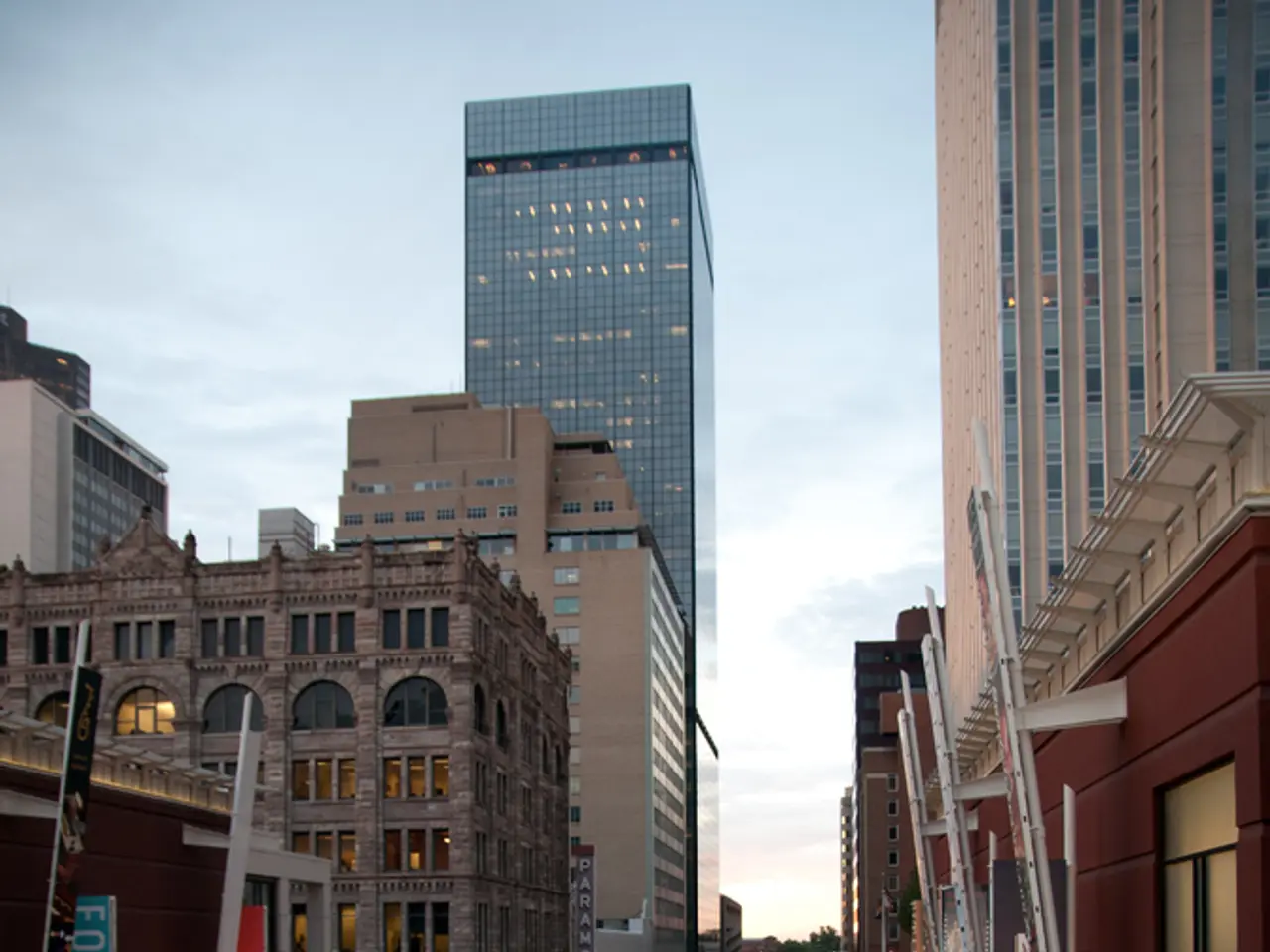Trump issues executive decree, mandating homeless individuals to vacate U.S. sidewalks
President Trump has signed an executive order aimed at addressing homelessness, particularly among individuals with severe mental illness or addiction. The order, which prioritizes civil commitment and forced treatment, directs cities and states to take action against homeless individuals who are unable to care for themselves [1][3].
The order encourages local governments to revive civil commitment, allowing authorities to place people with mental health issues in treatment facilities without their consent [3]. It also expands the use of institutionalization as a response to homelessness, rather than focusing on housing solutions [2].
Federal agencies are instructed to withhold grant funding from jurisdictions that use the "housing first" model, which prioritizes providing housing before treatment or sobriety. Instead, funding will be steered towards programs requiring sobriety and treatment before housing [1][4].
The order further calls for assessing homeless people arrested for federal crimes to potentially commit those deemed “sexually dangerous persons” to long-term facilities [3].
Critics argue that the order treats homelessness as a crime and diverts resources away from proven strategies like Housing First. They contend that forced treatment is often unethical, ineffective, and violates rights, while the order does nothing to address underlying causes like the high cost of housing [1][2][4].
The White House press secretary, Karoline Leavitt, stated that the Trump Administration aims to ensure the safety of American communities and provide help for individuals suffering from addiction or mental health struggles [5]. However, it is not yet clear how much funding will be allocated towards this initiative or whether there will be a parallel effort to reopen long-shuttered institutions as a public safety strategy.
Last year, the Supreme Court ruled that localities have the right to impose fines on homeless people who camp without permission on public property [6]. President Trump has expressed frustration over tent cities and rat-infested encampments that have appeared near the Kennedy Center, White House, and McPherson Square in Washington, DC [7].
According to the order, over 274,000 people were sleeping on the streets each night last year [8]. States and municipalities that enforce laws against open illicit drug use, urban camping, loitering, squatting, and tracking sex offenders will be prioritized for grants [9].
DC Mayor Muriel Bowser's administration has conducted clearances of encampments in the capital's core following complaints from President Trump [10]. The order identifies "assisted outpatient treatment" as an additional option for treatment, alongside institutional treatment [2].
The order's approach has drawn significant opposition from homelessness advocacy organizations. They fear that the mandatory institutional treatment and penalization of homelessness could worsen the homelessness crisis and violate civil liberties [1][2][3][4].
[1] https://www.nbcnews.com/politics/white-house/trump-s-homelessness-plan-would-force-treatment-mentally-ill-addicts-n1233476 [2] https://www.washingtonpost.com/politics/2020/07/23/trump-administration-plans-expand-civil-commitment-homeless-people-with-mental-illness/ [3] https://www.cnn.com/2020/07/23/politics/trump-homeless-order/index.html [4] https://www.nytimes.com/2020/07/23/us/politics/trump-homeless-order.html [5] https://www.whitehouse.gov/briefings-statements/remarks-press-secretary-karoline-leavitt-homelessness-executive-order/ [6] https://www.supremecourt.gov/opinions/18pdf/17-960_6f32.pdf [7] https://www.washingtonpost.com/local/dc-politics/trump-threatens-to-reopen-dc-asylums-to-house-homeless/2018/06/21/4c45c4e2-2a1b-11e8-a6d6-9b73f135c8d6_story.html [8] https://www.hudexchange.info/programs/coc-data-reports/ [9] https://www.whitehouse.gov/presidential-actions/executive-order-ending-national-emergency-declaration-regarding-homelessness/ [10] https://www.washingtonpost.com/local/dc-politics/bowser-administration-to-clear-encampments-near-white-house/2020/07/23/968e138c-2927-11ea-b5d2-64b0e1e40d12_story.html
- The world of media has reported on President Trump's recent executive order, which focuses on addressing homelessness, particularly among individuals with severe mental illness or addiction.
- The order, a part of the health-and-wellness sector, encourages civil commitment, allowing authorities to place individuals with mental health issues in treatment facilities without their consent.
- It expands the use of institutionalization as a response to homelessness, prioritizing treatment over housing solutions, as directed by the science and policy-and-legislation sectors.
- The media also highlighted criticisms arguing that the order treats homelessness as a crime, diverts resources away from effective strategies, and may violate rights, especially in terms of mental-health and general-news discussions.
- The order further calls for assessing homeless people arrested for federal crimes and committing those deemed "sexually dangerous persons" to long-term facilities, bringing crime-and-justice and mental-health concerns into the spotlight.
- As the policy progresses, various sectors, including nutrition, war-and-conflicts, and politics, keenly watch to see if the Trump Administration will allocate significant funding and potentially reopen long-shuttered institutions as part of the initiative focusing on public safety and individual struggles with addiction or mental health.




